#ancient law
Explore tagged Tumblr posts
Text
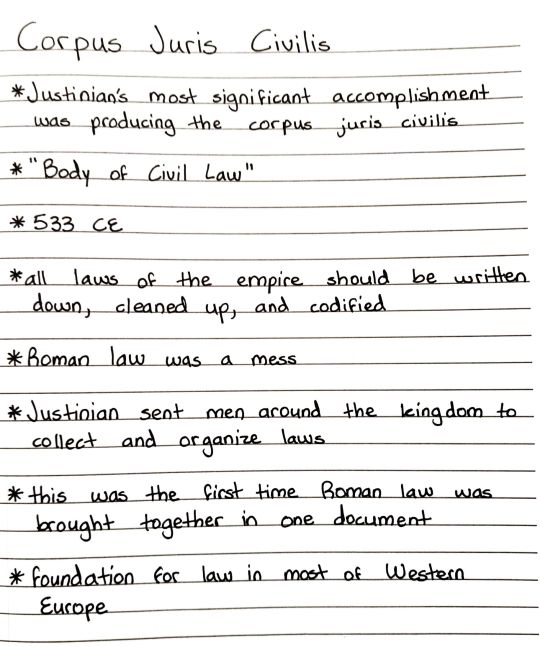
Patreon
#studyblr#notes#history#historyblr#history notes#world history#world history notes#western civ#western civilization#western civ I#western civ 1#justinian#emperor justinian#roman history#classical studies#roman emperors#roman law#ancient law#corpus juris civilis#european history#rome#ancient rome
11 notes
·
View notes
Text
In a period in which there were major changes taking place in property and political relations, the shifting importance of certain issues for lawmakers and compilers can tell us something about an attendant shift in values. The increasing emphasis in Mesopotamian law codes on the regulation of property crimes, the rights and duties of debtors, the control of slaves, and the regulation of the sexual conduct of women tells us that issues of gender, class, and economic power were problematic and demanded definition and that such definition linked these subjects in quite specific ways. Similarly, the severity of punishment for specific crimes is an indication of the values held by the community at the time of the codification of the laws. The Codex Hammurabi exacts the death penalty for: certain kinds of theft; housebreaking; connivance in slave escapes; faulty building construction which results in fatal accidents; black magic; kidnapping; brigandage; rape; incest; for causing certain kinds of abortions; and for adultery committed by wives.
-Gerda Lerner, The Creation of Patriarchy
#gerda lerner#patriarchy#code of hammu#the codex hammurabi#ancient law#female oppression#women as property
7 notes
·
View notes
Text
It is not the first collection of written laws. It is among the first but there are many before it, notably the Code of Ur-Nammu (as of now the oldest that we've found, about 300-400 years older than Hammurabi's laws) or the Code of Eshnunna that is still a few years older. Granted, they both are not preserved on nice stelae, but we have them in writing. The code of Hammurabi borrows heavily from the codes that came before, but of course contains some new laws as well.
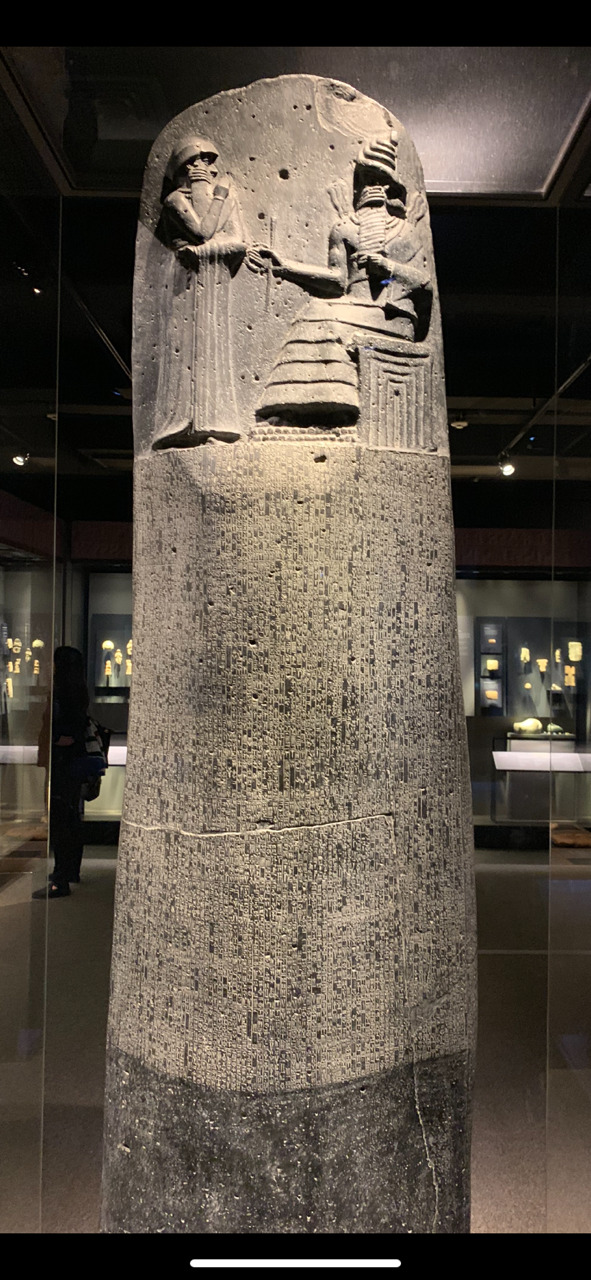
The Hammurabi Law Stele - first collection of written laws from the ancient world. 1750 BC - Babylon - Mesopotamia Iraq

300 notes
·
View notes
Text
Here's the link to the video
👏 SAY 👏 IT 👏 LOUDER 👏
#history#science#scienceblr#stem#stemblr#mathematics#mathblr#ancient persia#ancient india#ancient egypt#babylon#pythagorean theorem#snell's law#quadratic formula#fibonacci's sequence#pascal's triangle
10K notes
·
View notes
Photo

New article has been published on https://www.bibleblender.com/2023/biblical-lessons/biblical-history/ancient-texts/jewish-babylonian-talmud-tract-sanhedrin-rules-and-regulations-concerning-a-stubborn-and-rebellious-son-at-what-age-and-what-has-he-to-do-to-be-charged-as-such
Jewish Babylonian Talmud – Tract Sanhedrin–Rules and regulations concerning a stubborn and rebellious son, at what age and what has he to do to be charged as such…

p. 201 CHAPTER VIII. RULES AND REGULATIONS CONCERNING A STUBBORN AND REBELLIOUS SON. AT WHAT…
1 note
·
View note
Text
Success in your studies isn’t about cramming the night before or relying on last-minute luck; it’s about consistent effort and dedication. Every time you sit down to study, you’re investing in your future self. Remember, the small, daily efforts add up to something great. So, take a deep breath, organize your notes, and tackle each topic one step at a time. Your journey may be challenging, but it’s also incredibly rewarding.
There will be days when motivation is low, and distractions seem endless. On those days, remind yourself why you started. Think about the goals you’re striving toward, the knowledge you’re gaining, and the growth you’re experiencing. You’re capable of more than you realize. Stay disciplined, take breaks when needed, and don’t forget to celebrate your progress, no matter how small. You’ve got this!




#study aesthetic#study blog#study inspiration#study motivation#studyblr#studying#studyspo#law of assumption#law of attraction#light academia#dark academia#motivating quotes#get motivated#motivación#motivation#loa success#successmindset#successful#universidad#university#school#lawblr#history#ancient history#chaotic academic aesthetic#chaotic academia#quotes#work in progress#writing#writeblr
474 notes
·
View notes
Text

surprise kiss!
something quick for valentine's day :3
#new year new sabolaw#this is an ancient sketch ive decided to clean up for today#take it as a valentine's gift to all of u sabolawers out there <3#sabolaw#sabo x law#law x sabo#trafalgar d. water law#trafalgar law#revolutionary sabo#sabo one piece#i apologize for the Pink#i was trying something#fool scribbles#no main fandom tag id rather kms#the characters tags are already out of my comfort zone#temporary revolutionary law
173 notes
·
View notes
Text
How long was it between when Iroh convinced Zuko to take up the Fire Throne, and Sozin's comet? A day? Less??
AU where Iroh convinces Zuko to be the next Fire Lord MUCH earlier in the series. Zuko, who hasn't been in formal education since was 13yo, understandably panics. He barely remembers his lessons on How To Be the Fire Lord, and they were all focused on how to rule during wartime. Not peace. What does an international peace treaty even LOOK like and how does one go about making it???? How does trade work when you're NOT trying to eradicate every other nation????
Book 3 Zuko spends all of his time teaching Aang firebending, interrogating the other members about their culture's traditions and politics, going on Blue Spirit journeys to raid any passing libraries, and reading everything he can get his hands on. He barely eats. He doesn't sleep. He's info dumping about the DRIEST political texts. The gaang are THIS close to holding an intervention or having Toph sit on him until he sleeps.
#the gaang: morning zuko how did you sleep?#zuko (600 pages into an ancient text on the economic significance of grain farmers in the rural earth kingdom): a... agriculture....#avatar#atla#atla headcanons#i am obsessed with feral nerd zuko#the kid finished formal education at 13!!! against his will!!!#i know iroh was probably teaching him as much as he could but ngl zuko was NOT gonna sit and listen for long when he had an avatar to find#he's panicking and info dumps about ancient international law the second someone looks at him#hakoda is worried about zuko being nervous around him since he's a Father Figure#but zuko skips straight past the trauma and zeroes in on hakoda being an actual political leader!!! who knows stuff!!!#teach him sifu hakoda!!!#my posts
1K notes
·
View notes
Text


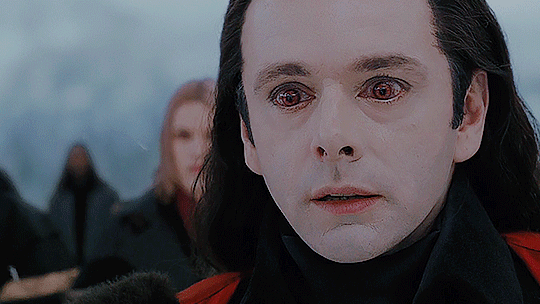
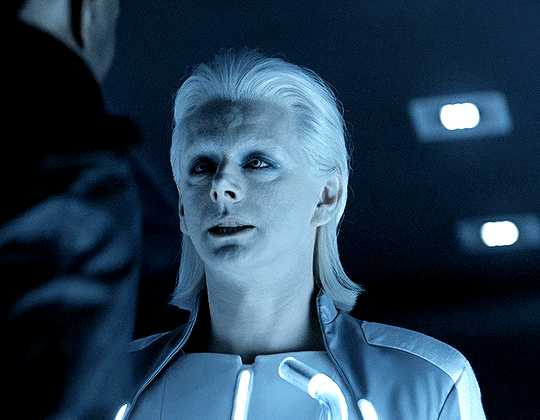


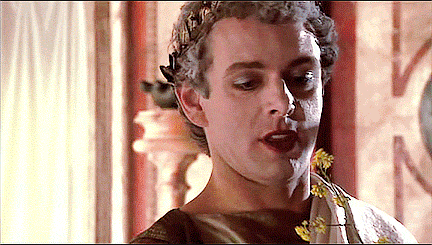



Michael Sheen is an absolute masterpiece 🔥
I wish Tumblr would let me post more gifs bc he has so much more range even than this, but alas, I had to pick 10 😭
Honestly though, how can one person absolutely rock so many different roles like he does? It's delicious
#michael sheen#good omens#aziraphale#bright young things#miles maitland#tron legacy#castor / zuse#underworld#lucian#the damned united#ancient rome#emperor nero#twilight#aro volturi#laws of attraction#thorne jamison
1K notes
·
View notes
Text

it always makes me sad to think about how young achilles was when he went to war. he spent a third of his life living to die. and he was too young to know any better about what it truly means to die for glory. he’d just been raised on the premise that it was a good thing to do. the best thing to want. better than any kingdom: glory in death.
his character is what comes of a child expected to be the best warrior. what comes of someone so young being raised in a world where violence is your most valuable asset. what comes of having human flesh and red blood but being expected to be a god. at just sixteen.
this is why i prefer to look at achilles as a figure of anti-war. his character shows us what it looks like to be a person who’s entire life has been defined by violence, by war, and — inevitably— by his death.
#yes i know 16 was an adult in ancient greece i’m not an idiot#however comma#his entire life was still dedicated to war#and his brain was still underdeveloped it doesn’t matter what the law is#greek mythology#tagamemnon#ancient greek mythology#the iliad#trojan war#achilles#patrochilles#achilles x patroclus#ancient greece
127 notes
·
View notes
Text
What even are the ancient laws?
I've been meaning to get around to this one for ages.
Anyways! Good question, guys! Answer: nobody fucking knows. Sure, we have good ideas. The laws are mentioned every now and then as a "oh, no little mortal child I can't help you - that's against the ancient laws. But hey! You can help me."
Let's be honest: the ancient laws, while there might be legitimate reasons for some of them, have transformed into yet another way that the gods hold themselves as the high and mighty overlords of the world, and keep their mortal offspring below them at all costs. But... why? Are the demigods really that dangerous to the gods? The answer: yes, but not to the gods - to Zeus.
Let's start from the beginning and list out everything we know about the laws. I did the hard work, you're welcome:
1. Gods cannot steal each others' symbols of power.
2. A god cannot initiate a fight with a mortal.
3. No direct interference - gods are not allowed to interfere in the lives and ongoings of mortals or monsters.
4. No more than 3 people are allowed on a quest.
5. Harming the sacred animals of a god is forbidden.
And that's it. Those are the only true mentions of the Ancient Laws in the entirety of the Riordanverse (at least, the Greco-Roman books).
And I think we all know what the most important one is. Direct Interference is the only one we see Zeus actively enforcing (or at least attempting to). But why is that? Well, stealing another god's symbol of power and initiating a battle with a mortal are physically impossible for gods, and the ban on harming a sacred animal is very commonly accepted already, as it's a guaranteed way to get your ass whooped. And the rule about having 3 on a quest isn't really something Zeus is going to spare the effort to enforce - starting a quest with more than 3 will typically guarantee that you come home with only 3, if at all.
But Direct Interference is the most interesting law, simply because it's the one that our demigod narrators are affected by the most, either in the ways their godly parents violate it, or refuse to do so.
There's plenty of instances where this law has had quite a bit of impact on the story and relationships. For example, Hermes used this law as a major reason why he could not help Luke or prevent him from raising Kronos. But let's be honest: besides Zeus himself, Hermes might be one of the only gods that actually obey this rule, despite the fact that he wants to break it. Just off the top of my head, I can name an instance in the series where every single Olympian at least toed the line of violating Direct Interference, except for maybe Demeter. And I'm not sure Dionysus counts, since he has contact with his half-blood children because of his position at CHB.
But there's something interesting even about the ways these gods break the law of Direct Interference. In most instances, these interactions with mortals happen when the god is in disguise, or through dreams. And, based on how little it seems like the gods get punished for breaking Direct Interference, we can only assume that Zeus is not aware of when gods talk to demigods via dreams. I mean, he's probably aware that it happens: Apollo, Poseidon, Hephaestus, Aphrodite, Hera, Ares (who occasionally follows the rule, but only as an excuse to not help a demigod out), Artemis (although she is subject to exceptions due to her domain), Dionysus, Athena (I think?), and Hades all do it at least once in the RRverse. I mean, you could also argue that dreams are a more indirect means if interference, but I can also see how that's an iffy argument at best.
So, what does this mean? If there is one thing I know about laws and rules in general is that people tend to break laws if the direct consequences of their own actions don't directly apply to them. Gods would probably respect the law of Direct Interference more if there was an immediate negative effect on themselves, aside from just the punishment.
Think of a law or a rule that people break all the time. Littering, for example. People do it all the time, even though it's bad. But why is it bad? A person who doesn't have a lot of forethought will drop a piece of trash and say 'hey, that doesn't affect me. The planet will suffer and this will be a pain in the ass to clean up, but I'm not the one cleaning it up, so why do I care?' If you don't care about the planet or other people cleaning up your trash, the only reason you have to not litter is that you're afraid of the punishment.
I think the attitude towards Direct Interference is similar. The only reason a god would obey is if they're afraid of the punishment, or if they respect Zeus enough to follow his laws (which, clearly, is not the norm in godly society). And even then, what is a punishment to an immortal being? The only way Zeus punishes gods that really matters to them is turning them mortal - and that's a very rare occurrence.
By that logic, we can assume that a violation of Direct Interference does not actually negatively affect gods all that much. To be honest, it doesn't negatively affect mortals either. Maybe monsters have the short end of the stick, but monsters didn't write the law of Direct Interference - Zeus did. So... why? Why does it exist?
My first thought was the Fates and prophecy - if gods can interact in mortal life without recourse, then it might fuck with the way the Fates operate. But gods have been interfering for the entirety of civilization. If they really had a the power to alter the future just by dipping a toe in mortal life, don't you think it would have been obvious? Even in the RRverse, there are plenty of instances, as I've mentioned, that gods have interfered in a quest, and said quest wasn't severely fucked over because of that interference. Take, for instance, Percy's quest to save Artemis - Apollo intervened, but where were the consequences of that? Where were the earth-shattering effects?
So what gives? Also, I'd argue that the gods would actually obey the law more if they knew it had such a negative effect on the proper functioning of the Fates, especially Apollo since that's his domain. So I'm going to say that's not the case.
So we're back to the first question: why does the law against Direct Interference exist if it has no effect on the gods or the Fates? In all references to the law against Direct Interference in the Riordanverse, never once is it explained why this law exists. Why would Zeus create it if violating it doesn't have some major world-ending effect? Gods are gods: what could make this law so important that it's the only one Zeus makes a true effort to enforce?
Well, it makes sense to me that Zeus would create the law if he's the one who has to bear the immediate consequences of it. Which raises the question: what are the immediate consequences? What reason could Zeus possibly have to separate half-blood children from their godly parents? HMmmmmmmMMMM.
Well, there's another interesting thing about the Ancient Laws: some of them don't apply to mortals. Mortals can steal a god's symbol of power, and mortals can initiate battles with gods. Imagine with me a scenario in which your enemy has an army that is not subject to the same laws you are. Gods are (as far as I know) physically incapable of stealing symbols of power and starting battles with mortals, but what does that matter if they have half-blood children that reach the power of minor gods, like Percy, who can do that for you?
It's a terrifying premise, if you're Zeus. And before you start telling me that I'm going down yet another far-fetched rabbit hole (listen - I always make sense in the end), we've seen Zeus go down this line of thought before, all the way back in The Lightning Thief. Remember???
Chiron said that the reason Zeus blamed Percy for stealing the Master Bolt was because the mines the Cyclopes used to forge the bolts is close to Poseidon's domain, and he thinks Poseidon has it out for him. Now, there's a theory running around the TOA fandom that gods can control how much power they hand off to their children (as seen with Apollo's children, who rarely inherit the power of prophecy, which we're willing to bet is something Apollo is controlling from behind the scenes), and if Zeus knew that Poseidon had had a child, it's possible Zeus thought Poseidon was trying to create a super-child just for the sake of overthrowing him. I'm willing to bet that one of his greatest fears is that an über-powerful child of one of his brothers would be used to steal his symbol of power and then overthrow him. He views demigod children like weapons that his enemies can use because they could be inherently dangerous to the standard structure of godly society. His main fear is somebody with the motivation of Luke having the power of Percy. And what do paranoid kings do when presented with the idea of their greatest fears? Make laws against them.
The only way Zeus could be sure that Poseidon would never intentionally have a child like Percy, then bring him under his wing just in time to start a rebellion against him is to ban that kind of interaction at all.

Counterpoint: you could also say that the law against Direct Interference was a way to protect the mortals against the gods who might harm them or do them dirty. Like getting women pregnant while in the form of a swan. Ahem ahem. Do you get my point, though? It's not like Zeus has any real reason to protect the mortals in this way, since he was one of the main perpetrators anyways, but it is a damn good excuse if he also wanted a reason to prevent a potential revolution led by demigods.
Now, if you'll bear with me for a little bit longer, there is one more interesting thing I'd like to point out: In the entirety of Trials of Apollo, Apollo (a god, obviously) only mentions following the Ancient Laws once. Unsurprisingly, at the time he's mentioning the law against Direct Interference, he's also violating it - when he kills Commodus to save lives, Rome, and for his own peace of mind. So, to me this basically means that Apollo doesn't give two single shits about following laws against Direct Interference.
Connect that with everything else we know about Apollo post-trials: he loves his kids, doesn't want to see them hurt, and is trying to distance himself from Zeus and godly society. Even pre-trials, he doesn't have any trouble admitting that Zeus makes his rules and laws difficult to follow - nobody is good enough in Zeus' eyes. I truly believe, if there's any person who, given the proper means and motivation to overthrow at least some aspects of the Direct Interference law, he would.

Just saying. Feel free to add on if anybody else has more thoughts!
[a masterlist of my other metas]
#riordanverse#toa#trials of apollo#apollogists#pjo#lester papadopoulos#apollo#percy jackson#meta#theory#fan theory#ancient laws#pjo apollo#pjo zeus
214 notes
·
View notes
Text
Tcf part 2 chapter 376
-Cale.
Cale looked up at the sky and heard Super Rock's voice.
-It's not a sky attribute. It's a cloud.
There was deep admiration in Super Rock's voice.
-Clouds that cover the sky-
Off topic but do you think the ancient powers were having war flashbacks while thinking that Heavenly Demon was creating a sky power and all of them just heaved a big sigh of relief when they saw it was just clouds like "Phew crisis averted guys haha that brought back some stuff" or something?
#tcf#trash of the count's family#lcf#lout of the count’s family#tcf novel#tcf part 2#laws of hunting#tcf ancient powers#tcf heavenly demon#tcf ancient white star#ancient white star#cale henituse
127 notes
·
View notes
Text
I like to imagine that every so often, Caleb and Essek go on vacation which entirely consists of two weeks of Essek trying to brute force teleport them into Aeor so that Caleb can have another go at that necromantic gem in the pillar.
#critical role#shadowgast#listen all wizards have their white whale and you know it's meant to be when your white whales complement each other <3#some wizards spend term break sharing spell books with their mortal nemesis or breaking all the laws of reality with heedless hubris#other wizards repeatedly teleport into the funky magic place where teleportation keeps going wrong#so that their partner can use all their spells trying to get that ancient and very likely dangerous magical artifact
340 notes
·
View notes
Text


🤔idk i just wanted to draw them hanging out
special shout out to @crabs-with-sticks who is doing the lord's work aka writing actual ot3 fic. it's an ancient arlathan au and oh boy it's fun!!! go read Small Tyrannies while i play with legos
stuck staring at a vast PEPE SILVIA board trying to decide timeline and dynamic evolution and how i want the au to work out so until then just get random blips of thought
#felassan#solas#ariden lavellan#solavellan#solavellassan#solafelavellan#solafellan#solassan#gee ariden why do you get two hot ancient elves lying to you#am i allowed to tag this solavellan and solassan or is this too far into ot3 territory...#i do not know ship tagging rules i'm sort of new here#i'll stop if people says that breaks ship categorization law lmao#fuck so many tags aaaaaAAAHH#PLEASE WE NEED TO HOLD AN ECUMENICAL COUNCIL TO SETTLE ON A SHIP NAME
119 notes
·
View notes
Photo

New article has been published on https://www.bibleblender.com/2023/biblical-lessons/biblical-history/ancient-texts/jewish-babylonian-talmud-tract-yomah-regulations-concerning-the-he-goats-of-the-day-of-atonement-and-the-sending-to-the-desert-and-the-confession-threat
Jewish Babylonian Talmud – Tract Yomah–Regulations concerning the he-goats of the Day of Atonement and the sending to the desert, and the confession threat.

p. 87 CHAPTER VI. REGULATIONS CONCERNING THE HE-GOATS OF THE DAY OF ATONEMENT AND THE…
0 notes
Text
fun fact: the letters j, u, and w didn't exist in the original roman alphabet. gonna fuck up jason's whole writing career with this (he has dyslexia) (he didn't have one in the first place)
him calmly writing his name and the others turning to look at him in confusion and horror. he writes "j" as "i" and "u" as "v" and he does all caps on all of his words.
he takes notes for his classes and his teachers think he's actually going insane because he's writing like ancient roman text.
#jason grace#hoo#pjo#heroes of olympus#hey buddy whatcha writing there ancient roman laws haha okay have fun#mortals cant deal with him whatsoever#“surfing accident” my ass.
73 notes
·
View notes